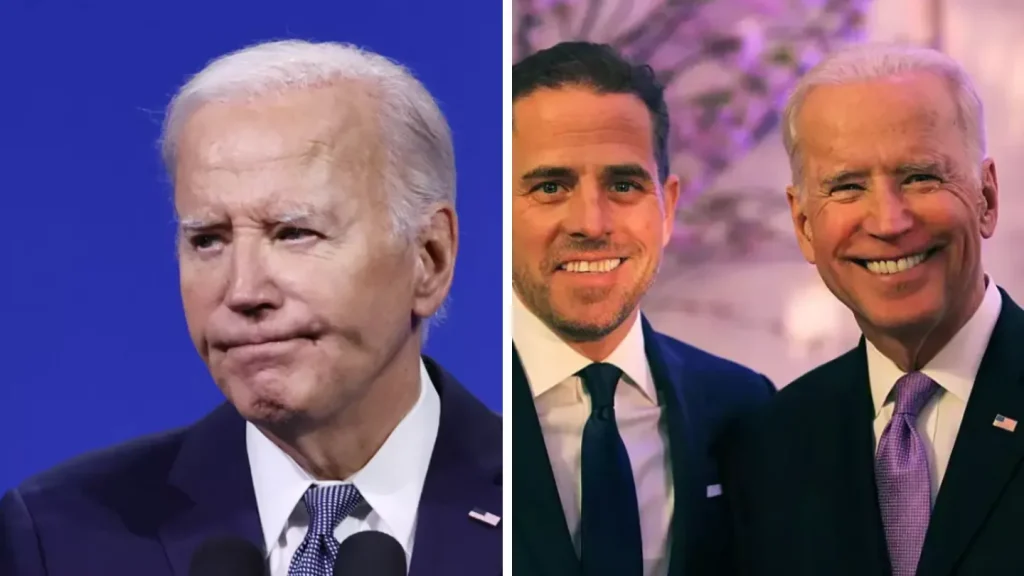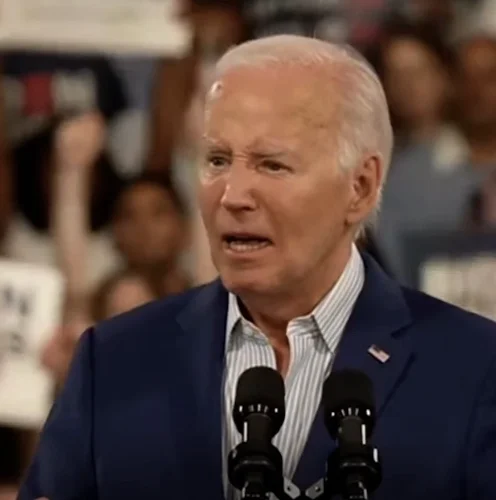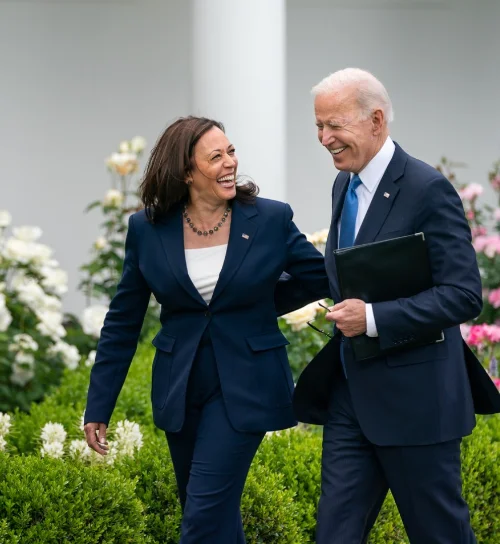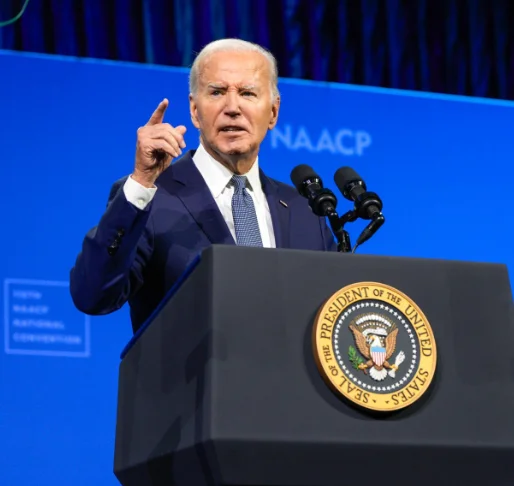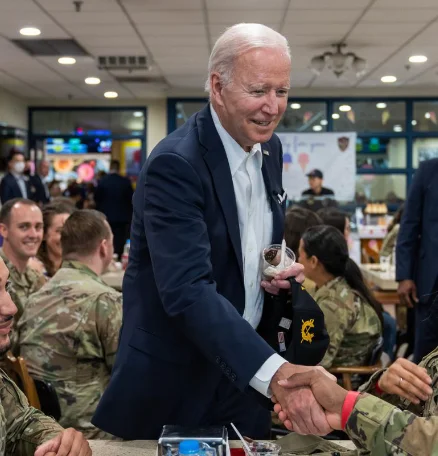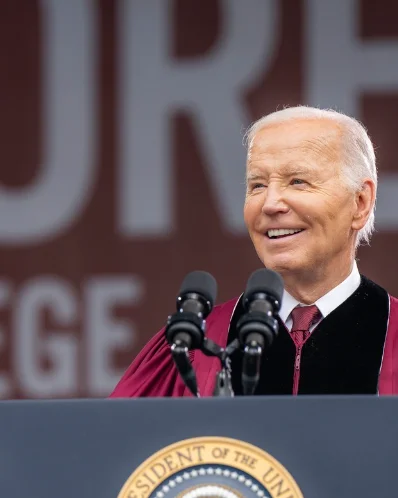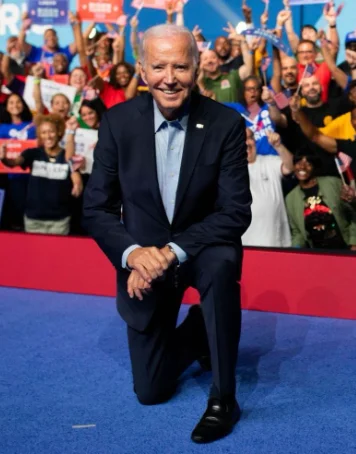As the Biden administration nears its conclusion, a recent decision by the outgoing president has ignited widespread debate.
Political observers, legal experts, and citizens are grappling with the implications of a move that intertwines family loyalty, justice, and presidential power.
The spotlight has been on Hunter Biden, whose legal troubles have captured public attention over the past year.
Convicted in June of falsifying documents to purchase a firearm, Hunter’s case took a darker turn as he pleaded guilty to tax-related offenses later in the year.
Prosecutors argued that in 2018, during a period of severe drug addiction, Hunter Biden lied on federal paperwork by claiming he was not a drug user.
This admission came alongside charges of unpaid taxes totaling $1.4 million, for which he admitted guilt to spare his family further embarrassment.
The gun-related charges carried a maximum sentence of 25 years in prison, while the tax convictions could result in up to 17 years behind bars.
However, legal experts suggested that sentencing guidelines might have resulted in a lighter sentence or even the possibility of no prison time.
Amid mounting legal pressures, President Joe Biden consistently stated he would not intervene in his son’s cases.
Repeatedly, the White House assured the public that Hunter Biden would face the legal process without presidential interference.
Even after Donald Trump’s recent election victory, President Biden maintained this stance, insisting he would abide by the rule of law.
As recently as June, Biden declared, “I abide by the jury decision. I will do that and I will not pardon him.”
The promise appeared ironclad as White House Press Secretary Karine Jean-Pierre reiterated on November 7 that the president had no intention of pardoning Hunter Biden.
Speculation, however, began to swirl after the Thanksgiving holiday, raising questions about whether Biden might reconsider.
Insiders claim that the president’s perception of political targeting of his son deeply affected him.
Biden alleged that the legal proceedings had been “infected by raw politics,” calling the situation a “miscarriage of justice” orchestrated by his political adversaries.
Republican lawmakers and Donald Trump, in particular, have frequently criticized the younger Biden’s legal woes.
Trump, set to return to the White House, has frequently referred to the Biden family as a “crime family” and called for further investigations into Hunter’s international dealings.
Facing this impending change in power, President Biden reportedly struggled with the decision, confiding in close aides.
Sources revealed that the family’s Thanksgiving gathering played a pivotal role in Biden’s ultimate resolution.
Finally, in a stunning reversal, Joe Biden announced on Sunday that he had granted a “full and unconditional” pardon to his son.
The clemency extends beyond the gun and tax charges to cover all federal offenses Hunter Biden committed or may have committed between January 2014 and December 2024.
This sweeping pardon effectively ends the legal saga surrounding Hunter Biden, sparing him from imminent sentencing and shielding him from future federal charges.
It also encompasses the period of his tenure at Burisma and his other foreign business activities, areas that have drawn considerable scrutiny.
In his statement, Joe Biden defended the decision, stating, “No reasonable person who looks at the facts of Hunter’s cases can reach any other conclusion than Hunter was singled out only because he is my son.”
He added that the charges were politically motivated and fueled by his opponents.
Hunter Biden expressed gratitude for the pardon, acknowledging his struggles with addiction and vowing to use his second chance to help others.
He vowed to rebuild his life in recovery, saying, “I will never take the clemency I have given today for granted.”
Critics, however, have been swift to condemn the pardon as a misuse of presidential power.
Donald Trump labeled the move “an abuse and miscarriage of justice” and mocked the decision by questioning whether it included his supporters jailed over the January 6 Capitol riots.
Experts also weighed in, with Jeffrey Crouch, a prominent scholar on presidential pardons, stating, “Presidents should not use clemency to help out their friends, family and allies in order to further their own personal interest.”
Joe Biden’s decision to leave the White House has sparked significant controversy, making his final days in office one of the most debated acts of his presidency.
We will now view the legacy of Biden’s presidency through the lens of this contentious and deeply personal choice.
Featured Image Credit: (Instagram/ @joebiden)

